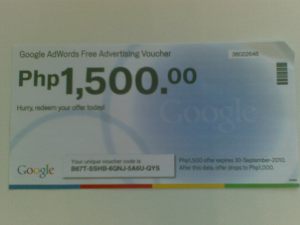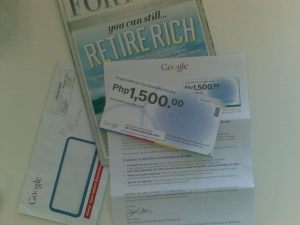 By Hope Katz Gibbs
By Hope Katz GibbsReposted from May 1, 2010
Be Inkandescent Magazine
 A native of Bangladesh, Dr. Muhammad Yunus was educated at Dhaka University and was awarded a Fulbright scholarship to study economics at Vanderbilt University. In 1972, he became head of the economics department at Chittagong University.
A native of Bangladesh, Dr. Muhammad Yunus was educated at Dhaka University and was awarded a Fulbright scholarship to study economics at Vanderbilt University. In 1972, he became head of the economics department at Chittagong University.
He then served as chairman of the economics department at Chittagong University before dedicating his life to providing financial and social services to the poorest of the poor.
Former President Jimmy Carter says of Dr. Yunus’ work: “By giving poor people the power to help themselves, Dr. Yunus has offered them something far more valuable than a plate of food — security in the most fundamental form.”
WHAT HE DOES: Teaches entrepreneurs and others how to build social businesses
In his 2010 book, “Building Social Business: The New Kind of Capitalism that Serves Humanity’s Most Pressing Needs,” Dr. Yunus draws on his previous books to show how social business has gone from being a theory to an inspiring practice.
“The biggest flaw in our existing theory of capitalism lies in its misrepresentation of human nature,” Dr. Yunus explains. “In the present interpretation of capitalism, human beings engaged in business are portrayed as one-dimensional beings whose only mission is to maximize profit. Humans supposedly pursue this economic goal in a single-minded fashion.”
“This is a badly distorted picture of a human being,” he insists.
“As even a moment’s reflection suggests, human beings are not moneymaking robots,” he believes. “The essential fact about humans is that they are multidimensional beings.”
“Their happiness comes from many sources, not just from making money. And yet, economists have built their whole theory of business on the assumption that we do nothing in our economic lives besides pursue selfish interests. This interpretation denies any role to other aspects of life — political, social, emotional, spiritual, environmental, and so on.”
Leading corporations including BASF, Intel, Veolia, Adidas and DANONE (known as Dannon in the US), are taking heed. Each has embraced Yunus’ idea to create self-sufficient, community-serving business projects — and they are already making a difference in the lives of people around the world.
The global yogurt company DANONE, for instance, has established a partnership with Grameen to produce vitamins and nutrient-rich yogurt blends for the poor and malnourished in India and Bangladesh. Dr. Yunus’ next challenge to DANONE is to create fiber-rich edible cups to put that yogurt in so there’s no waste and the consumer gets even healthier, nourishing food.
Veolia is working to give poor communities access to potable water, and Cure2Children is focused on discovering treatments for rare cancers and blood diseases in children around the world.
The fact that these companies can find creative solutions to problems that plague much of the world does not surprise Dr. Yunus.
“The world today is in possession of amazingly powerful technologies,” he says. “But almost all of this technology is owned and controlled by profit-making businesses. So often, all they use this technology for is to make more money, because that is the mandate their shareholders have given them.”
“Yet viewed more broadly, technology is simply a kind of vehicle,” he adds. “One can drive it to any desired destination. If somebody decides to use it to end poverty, it will take the owner in that direction. If another owner wants to use it to end diseases, the technology will go there. The choice is ours.”
WHY HE DOES IT: Dr. Yunus is determined to “Create a World Without Poverty”
In 2009, Yunus was touring the world to promote another book, “Creating a World Without Poverty,” which outlines his vision for a new business model that combines the power of free markets with the quest for a more humane world.
“In the last two decades, free markets have swept the globe, bringing with them enormous potential for positive change,” Dr. Yunus explained. “But traditional capitalism cannot solve problems like inequality and poverty, because it is hampered by a narrow view of human nature in which people are one-dimensional beings concerned only with profit,” he says.
“Human beings have many other drives and passions, including the spiritual, the social, and the altruistic. Welcome to the world of social business, where the creative vision of the entrepreneur is applied to today’s most serious problems: feeding the poor, housing the homeless, healing the sick, and protecting the planet.”
Indeed, “Creating a World Without Poverty” tells the stories of some of the earliest examples of social businesses, including Yunus’ own Grameen Bank, and reveals the next phase in a hopeful economic and social revolution that is already under way. His goal: to create a worldwide effort to eliminate poverty by unleashing the productive energy of every human being.
“Dr. Yunus goes beyond microcredit to pioneer the idea of social business—a completely new way to use the creative vibrancy of business to tackle social problems from poverty and pollution to inadequate health care and lack of education,” says Perry Hooks, president of Hooks Book Events, who helped bring Yunus to DC and donated a portion of ticket sales to the Grameen Foundation. “This is a worldwide effort to eliminate poverty by unleashing the productive energy of every human being. I am honored to be able to bring Dr. Yunus to Washington, DC, and host this important event.”

